Easter is coming, our school will organize an ” Environmental-friendly Art Carnival” on 23rd March,2024 (Saturday) to promote environmental protection messages to parents and children, cultivate them to learn the concept of waste recycling and increase quality of parent-child time between parents and children. “Welcome to all parents with children under 6 years old to join.”
Children can enjoy coming to school and reduce their fear to the new environment by diversified activities provided by our school. This can also establish a strong relationship between children, parents and the school. The following are the details of the activities.
6th February- Parent-Child Chinese New Year Carnival (Thank you for your active participation)
23rd March- Parent-Child Environmental-friendly Art Carnival
26th April- Parent-Child Physical Activity
31st May- Parent-Child Music Activity
8th June- Parent-Child Art Activity
6th July- Parent-Child Storytelling and Rhythm Activity
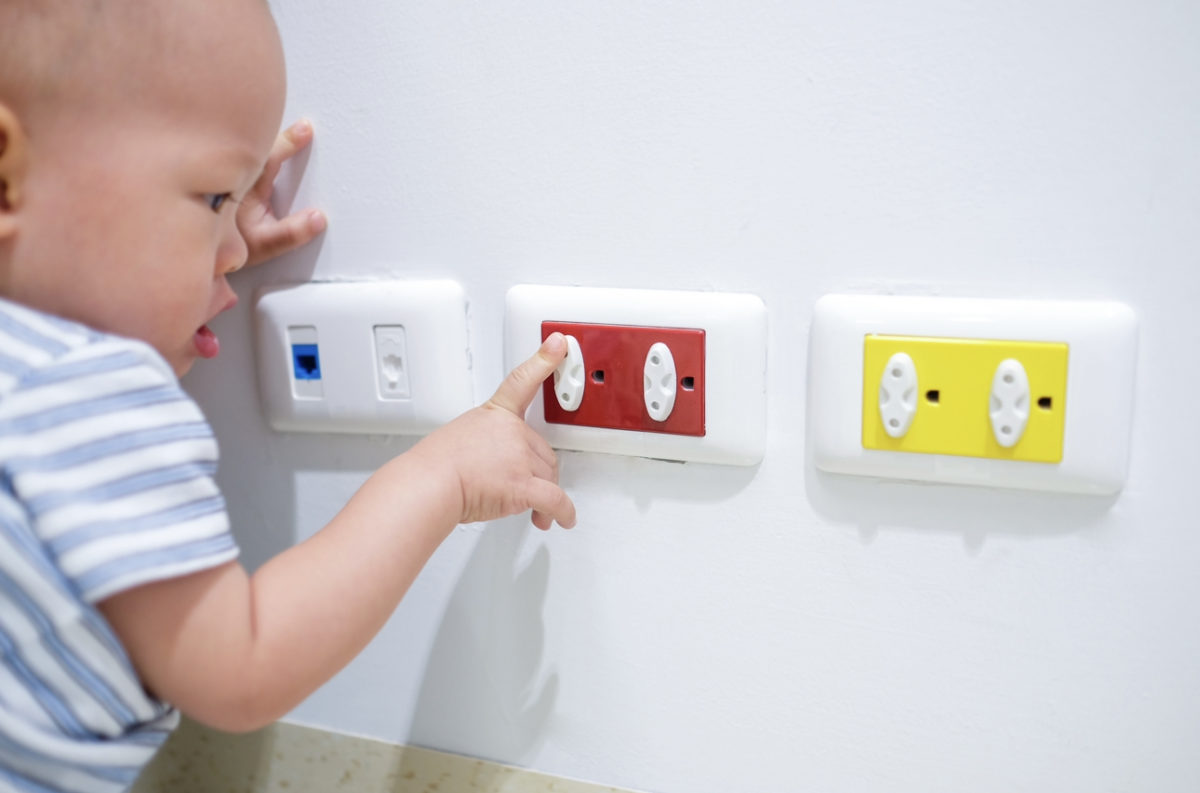
Source: Emergency Room Specialist Dr. Cheung Hei Lok
There are hidden dangers in the home, and children can easily get injured with just one careless moment. What should be taken into consideration when arranging the home to prevent children from getting injured?
One common household accident is children getting their fingers caught. Sometimes, due to strong winds, doors may slam shut or someone may accidentally close the door, resulting in finger injuries. Therefore, it is important to always lock the door when entering or leaving, or at least keep the keys out of reach. Parents can also use adhesive materials to secure the door latch so that even if it closes, fingers won’t get caught, or use door stoppers to reduce the risk of finger injuries.
In the kitchen, it is advisable to install a kitchen gate or ensure that the kitchen door is securely closed, preventing children from entering the kitchen. Parents should also teach children about fire safety from a young age. Fire is both useful and dangerous, so it should be handled with great care.
In addition, medications can also pose a danger. Sometimes, even consuming a single pill can be risky for children, so medications should be stored properly, especially in a medicine cabinet. Medicine boxes should be placed in higher positions that are out of reach of children, ensuring greater safety.
We should also be cautious about children climbing on things, such as bunk beds, higher beds, and sofas, as they may fall. In addition to educating them, we can assess which areas pose a higher risk and place some cushioning there, so that even if they fall, it won’t be as severe. Of course, education is always the most important aspect, and we should also try to prevent them from accessing these dangerous areas.
In Hong Kong, living spaces are often small, and we tend to use tall cabinets to store many items. When there are too many things, it can increase the risk of the cabinet toppling over. Therefore, we should personally check whether the cabinet is easily swayed. When placing items, it is important to put heavier items at the bottom and lighter items on top, so that the cabinet is less likely to tip over.
Another important aspect of home safety is to install window grilles. Children may climb on windows, which poses a greater risk compared to general home safety issues, as it directly involves the risk of life-threatening situations.
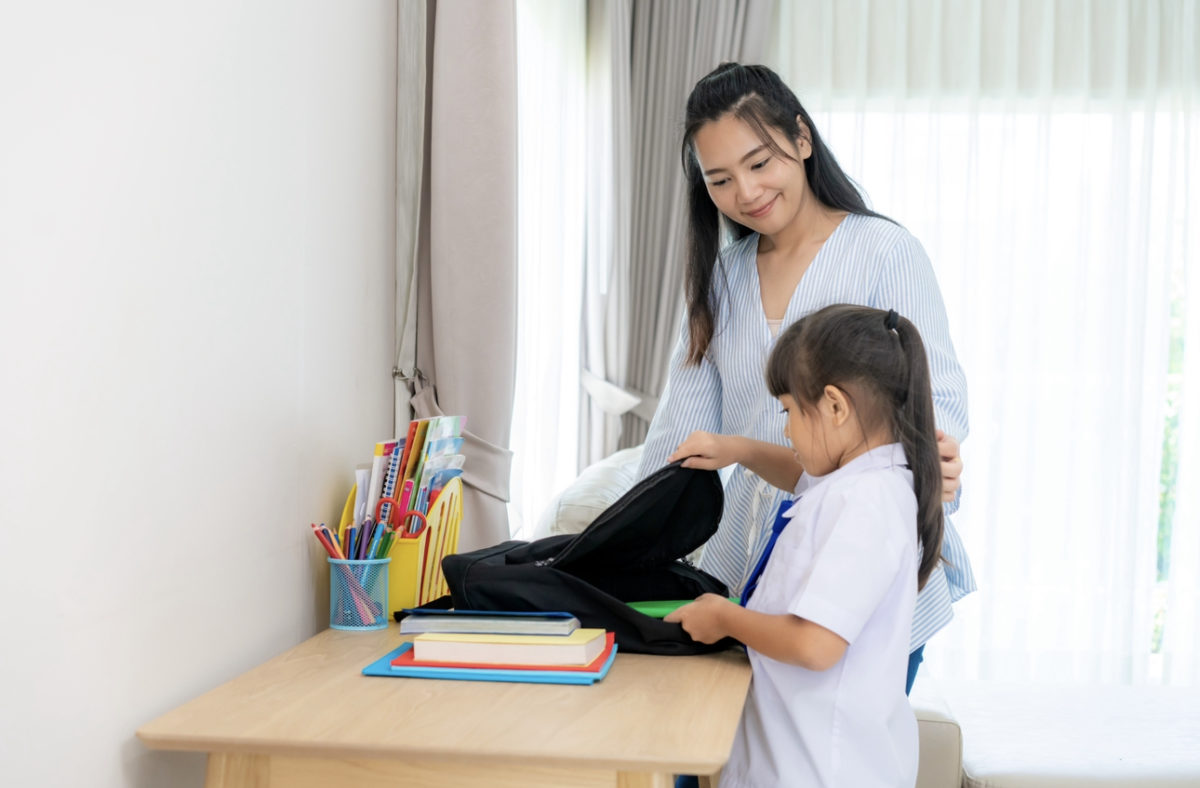
Source: Professor Chiu Wing Kai, Chair Professor of Sociology at the Education University of Hong Kong.
It’s already been 5 months into 2023 and summer vacation will be coming soon, followed by the start of the new school year in September. For K3 students to start their primary school life. However, these students have spent most of their 3-year kindergarten education in online classes due to the pandemic, with little face-to-face interaction. How can parents help them adapt to their new academic and social life in terms of their psychological and physical well-being.
Students who are promoted to Primary 1 are at most at K2 level because they have not returned to school for at least one full year. There are many things they need to adapt to when transitioning from kindergarten to primary school. These include school schedules, daily routines, and learning styles that are vastly different from what they are used to. Kindergarten classes typically last for around 20 minutes, after which they move on to another subject, but in primary school, classes can be 35 minutes or longer, making it difficult for them to maintain their focus. All of these issues can create significant adaptation problems for young students.
。
So how can parents explain these changes to their children? Firstly, parents should not be too anxious, as many primary schools offer simulation courses and adaptation weeks for new students, as well as school visits. Primary schools are usually much larger than kindergartens, and young students may be excited about the various facilities and opportunities available to them. However, it is best to start talking to them once they begin school, as too much information too soon may be overwhelming. Simply telling them, “Yes, this is what school is like” is often enough.
Additionally, some things that young students may not be capable of now do not mean they cannot accomplish them, they just need time to grow and develop. Parents need to remember that every child has a different growth rate. After starting school, observe their emotional changes when they return home from school, and if you notice any issues, pay close attention to them.
It takes time for young children to adapt, but sometimes parents also need to adapt. In kindergarten, we refer to it as the Homeroom (regular class location), where one teacher leads the class, and children usually only see one or two teachers. If parents need to participate or collaborate with the school, they can simply find that teacher. In primary school, each subject has different teachers, so if any issues arise, parents need to consider how to communicate with each teacher.
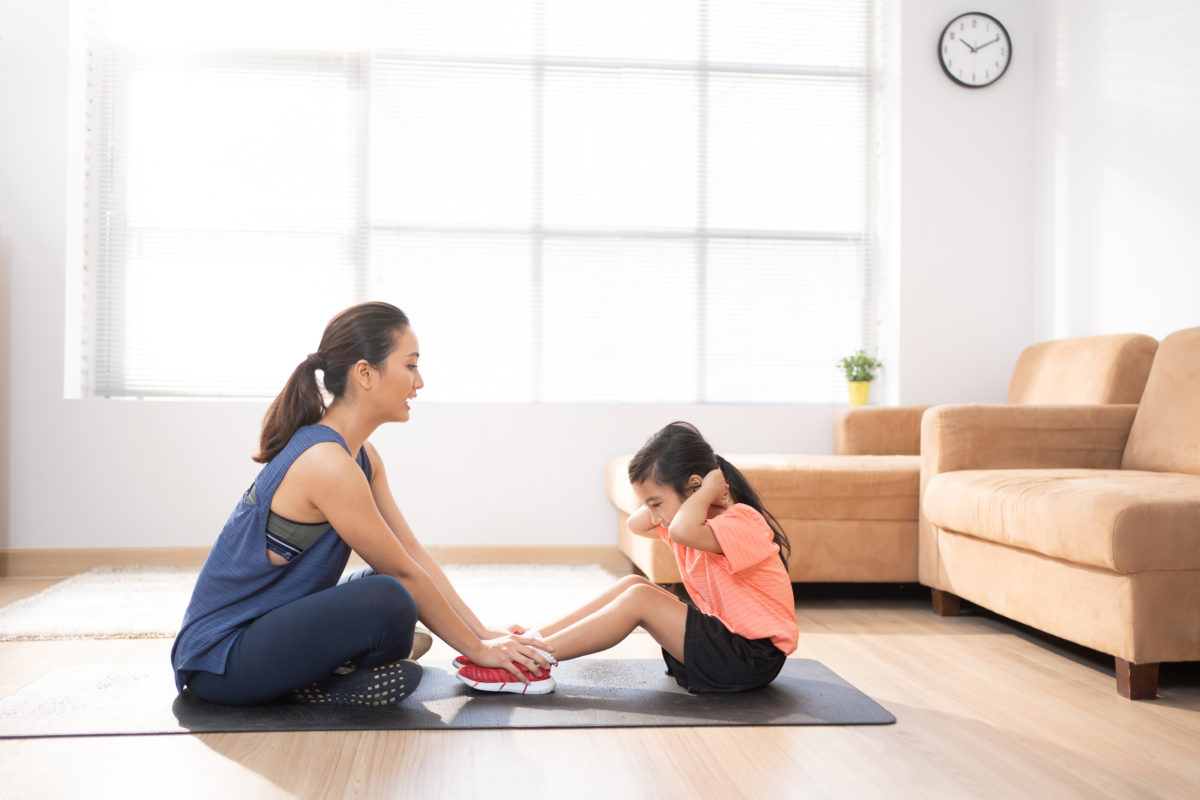
Source: Registered Physiotherapist, Hui Wing Yee
Children have a heavy academic workload and spend more time at home, losing many opportunities to exercise. However, the development of children’s limb muscles is very important, and some stretching exercises for the waist and upper limbs can be done at home.
The first set of exercises is the lunge and twist, which helps to exercise the core muscles and lower limb muscles. First, open your feet to hip width, place your hands on both sides of your body, step out with your right foot to maintain a 90-degree angle on both knees, open your hands with palms facing forward, slowly turn to the right, and hold for two seconds. Then return to the original position with hands hanging down, repeating on both sides ten times.
The second set of exercises is quadruped limb raises. These exercises help strengthen our back and limb muscles. If possible, use a yoga mat to avoid putting pressure on your knees. First, start on all fours with your hands shoulder-width apart and your knees hip-width apart. Lift your right hand and left leg straight out, creating a horizontal line. Tighten your back and abdominal muscles, hold for two seconds, then switch to your left hand and right leg. Alternate between both sides for a total of ten reps.

Source: Speech therapist, Miss Carley
When children learn a language, pronunciation is also an important aspect. There are many pronunciations in English that are not found in Cantonese and are difficult for both children and adults to master. How can parents teach children to pronounce English correctly? What are some tips to use?
The English tongue’s sounds can be difficult for children and even adults to master. We can try to use different cueing techniques to teach children to pronounce the sounds correctly. For example, parents can use visual cues, such as looking in the mirror with the child and showing him the tip of his tongue, placed between the two rows of teeth.
In addition, parents can also use verbal cues to clearly tell the child, “Put your tongue in the middle of your two rows of teeth,” so that they know what to do. When necessary, parents can also provide tactile cues, such as using a popsicle stick or spoon to touch the tongue and showing them where to place it for different sounds.
Parents can also try playing simple games with their children to train their listening skills, such as whether they can distinguish between right and wrong in terms of hearing. For example, intentionally mispronouncing a word: “Is ‘fank you’ correct? No, it’s not.” “Is ‘thank you’ correct? Yes, it is.”
This time we have to bite our teeth on the tongue or write the words “free” and “three” on a piece of paper, and then the parent reads out one of the words “three” “You show me which one” and reads “free”, “You show me which one”. If he knows how to distinguish, it will be clearer and easier for him to express himself.

Written by: Family Dynamics Psychological Counselor, Lai Shun Mei
Every time a child does homework, he or she falsely claims to have a stomachache, to go to the bathroom, or to go to sleep. Thousands of lies and excuses. Parents who value character development are naturally outraged because they have zero tolerance for dishonesty in their children. But why do children always avoid doing their homework? Why do they have to lie to cover it up?
Often, children avoid doing homework not because they don’t want to, but because they can’t. Children want to be good and smart, but when they find out they can’t do their homework, they think they are not smart enough. They can’t accept this and will lie to cover it up and avoid it. Generally speaking, children with normal intelligence but learning disabilities will have their academic performance affected to some degree, but they can excel in other areas as well. And regardless of their intelligence level, as long as they use the right approach, coupled with the right amount of training, they can also build the corresponding ability.
But why do people lie? When a person feels that he or she is in an uncomfortable situation, he or she will activate the defense mechanism to protect himself or herself. Lying is one of the ways to cope with a crisis by avoiding it. If parents want to help their children, they should allow them to tell the truth so that they can understand what their children really don’t understand.
How do you instill in children the courage to speak the truth? You have to let your child know that even if he is not smart enough, you will still love him so much, take him as your joy, be patient with him, and find ways to help him solve his problems together, thus building up his sense of security and making him feel at ease to reveal his inner uncertainties and difficulties. On the contrary, if his experience makes him think that he is not smart enough, which will lead to his mother’s anger and complaints, he will not dare to tell the truth and even activate his self-protection mechanism to protect himself with lies that adults can uncover at first glance.
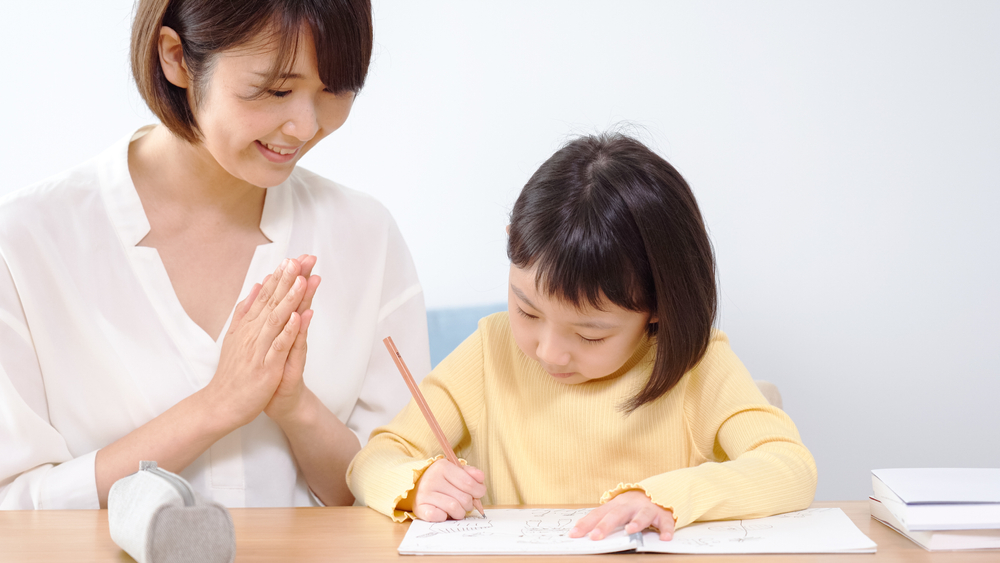
At this point, the child will not only fail to protect himself but will also get into more trouble because the mother will be rehabilitated and will take the initiative to admit her mistake and promise not to lie again. But in fact, his homework difficulties are not resolved, creating a vicious cycle. Therefore, we encourage parents to learn to accept their children’s shortcomings so that they will have confidence in you and feel safe to open up to you.

Source: Registered Clinical Psychologist, Yiu Fong Lee
Parents often encounter various behavioral problems with their children, which can be very troubling. For example, they ask their child to do homework, but the child doesn’t do it; they ask the child to eat, but the child sits there playing instead. When children display many uncooperative behaviors, parents become very angry and may use blaming or punishing methods to deal with them. In times of great distress, children become even more uncooperative because they feel their parents are annoying and only have negative evaluations, causing their behavior to become increasingly uncooperative and disobedient. In the practice of mindfulness, parents can learn to carefully observe what is happening at the moment without any criticism, and then try to connect with their child wholeheartedly and notice any good qualities.
In the mindfulness parenting group, we encourage parents to use their five senses, including sight, hearing, taste, touch, and smell, to experience mindfulness while eating. For example, taking a piece of raisin and putting it in your mouth, feeling its texture at that moment, and noticing any changes. Through our careful observation, we will discover that raisins are actually very sweet, and they will slowly melt in our mouths.
We can apply this mindset to our interactions with children in daily life, meaning that in addition to their uncooperative behavior, tantrums, or emotional outbursts, we should observe them carefully to see if there are any other things that other parents might not notice. In the mindful parenting group, one mother shared that besides being angry when her son didn’t listen to her, she also noticed that he was willing to help her carry heavy objects or food at times, showing that he cared for her.
Some mothers even mentioned that their sons may be sensitive to certain sounds, but during the New Year’s vegetable-grabbing game, they would try their best to grab the vegetables and bring them back to their mothers because they wanted them to be healthy and safe. The mothers felt that their children loved them very much, so they paid more attention to the good things their children did or the times when they cooperated. For example, if a child refused to do homework ten times but then was willing to do it or quietly read once, the mother would appreciate and tell the child, “You were very focused today, and I appreciate that.” Over time, the child will realize that he or she can do well, and the mother won’t be so annoying or only focus on the bad things the child does. Instead, the mother will focus on the good things the child does, and the child’s behavior will gradually get better.
In clinical practice, we often see that in parent-child interaction, when parents can sense the subtle aspects of daily life, such as what their children are willing to give, cherish, or when they exhibit good behavior, it can greatly help improve the interaction and relationship between the two. Additionally, when children feel positive about themselves, their confidence will also improve.
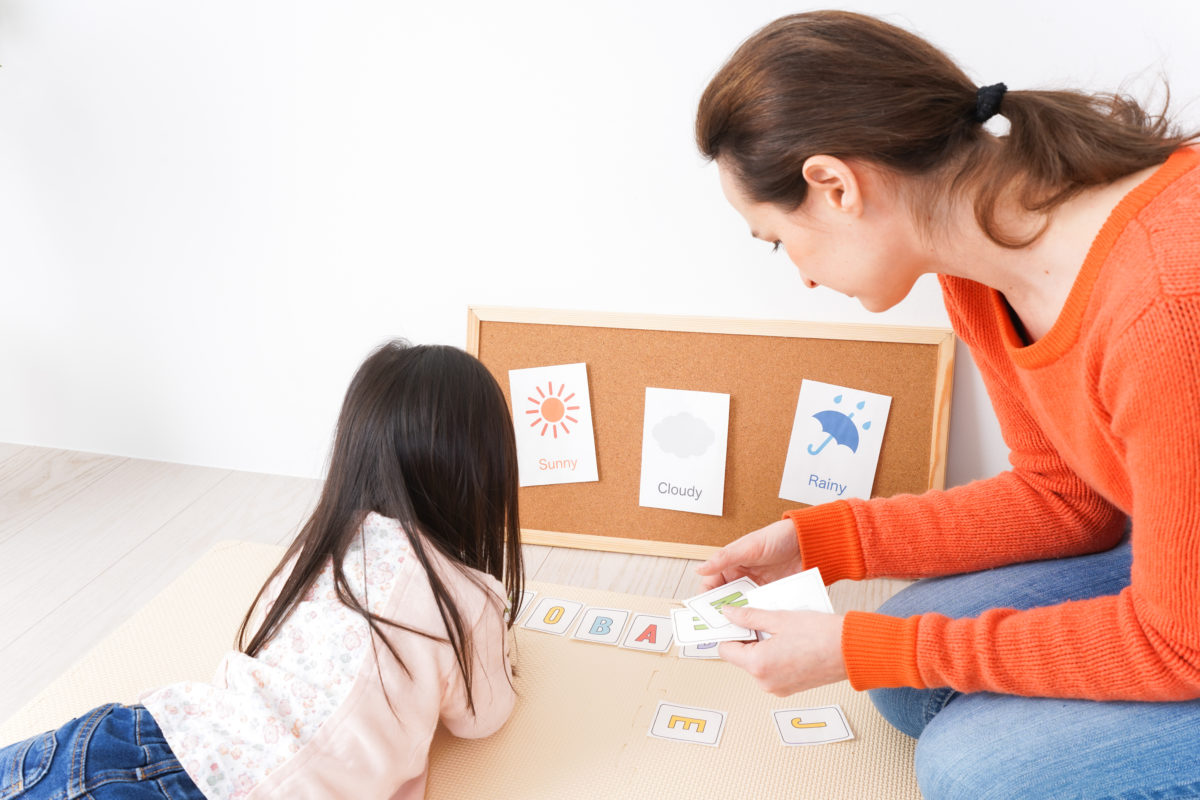
Source: Speech therapist, Miss Carley
Often, we want children to learn English vocabulary, which may be difficult and boring for them. In fact, parents can try to create some simple games for children to learn these English words through the process of playing.
The first game is called “Covering the Card.” It is similar to the card game we usually play. Parents can write some words that children need to learn on white paper and draw more sheets with laughing faces. How do I play it? To begin, we must mix the cards and distribute them evenly to each player; for example, each parent and child will receive four cards. Then, take turns playing the top card. For example, if this card is drawn, read out the word, explain its meaning, and use the word in a sentence. But if a laughing face is drawn, the player needs to quickly slap the card. If the player is slower, they must take all the cards and keep them in their hands. The player with no cards in their hand wins.
The second game is called “passing three levels.” It is actually similar to the game we usually play, but this time we have pre-written some vocabulary words in the nine squares. Then, we take turns with the child to draw some crosses or circles. For example, if I draw a cross here, I need to read, explain, and make a sentence with the vocabulary word in this square. Then it’s the parent’s turn; they might use a circle, just like in “passing three levels.” The first person to connect three cards in a straight-line win.
The third game is a memory matching game. Parents can write some Chinese characters that children need to learn on white paper and write each character twice. Parents can randomly place pairs of word cards on the table. Then parents can ask the children to take a look and remember them, and then flip the cards over. Parents and children take turns flipping over two cards. If they match, the child is asked to use the word to make a sentence, explain its meaning, and read it out loud.
